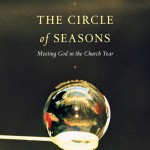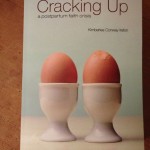Dear friends,
Heading into Lent, I had grand plans of launching a newsletter, of starting a Facebook group, of creating a Movement. I was going to call it Read Upstream, a gathering of people who like old books and treasure the wisdom they contain. Over the course of Lent, those plans got dismantled. I’d like to say it was God who dismantled them, but it might have been me. Either way, I’m not terribly disappointed. I’m not sure I’m Founder-of-a-Movement material anyway. I lack confidence and that je ne sais quoi we call charisma.
I’m still working on the newsletter (technical difficulties abound!), so for now I’m posting some of what would go in said newsletter here on my blog. To wit, a list of books I finished in April (some of which took me many months to read) that I think others–you!–may enjoy or benefit from (both, I hope!).
So here is my April in books:
City of Bells by Elizabeth Goudge (1936)
I discovered Elizabeth Goudge four or so years ago, and I’m slowly reading through her body of work because I love her books so much that I want there always to be another one.
City of Bells is one of her mid-career novels. It’s good, but not as good as her later books (which is exactly as it should be). As with all Goudge novels, the city is as much a character as the people (though the sense of place is not as rich and developed as in her later books), and her sympathetic portraits of the people of Torminster are engaging and delightful. Her prose is delicious, and her insight into human personality is as helpful as it is profound. For those of us who are introverts, nine-year-old Henrietta is a wise role model.
George Muller: The Guardian of Bristol’s Orphans by Geoff and Janet Benge (1999)
The Benges have written several series of middle grade biographies. This is from their Christian Heroes series. The writing is…not excellent. But the content more than makes up for paucity of style. This book is a quick read, but I found myself stopping periodically in wonder at the faith of George Muller and praying that God would increase my own faith. For that alone I think it’s worth reading!
The Winter Seeking by Vinita Hampton Wright (2003)
I picked up this book at the library because I will be speaking at a writing retreat next March where the author is keynoting. I figured I ought to be familiar with her work. This novel is set in December and is ostensibly a Christmas book, but it’s fine to read in April.
It was particularly helpful for me, as I begin to explore again my desire to write novels (one of the things that came up during Lent that led to the dismantling of my Movement). It is a simple story about a young woman in a difficult time who meets Mary and through her, Jesus. It helped me see that a book can be good even if it’s not Great Literature. It helped me see that even a simple story is worth writing. And it is helping me listen to the characters that have been making cameo appearances in my head for the past eight years, with the intention of finally writing down what they say and do.
Little House in the Big Woods by Laura Ingalls Wilder (1932)
I read this aloud to my kids for our winter literature selection. It’s a re-read for Jack and Jane, but so good it’s worth reading again and again. Wilder’s re-creation of her childhood in the Big Woods of Wisconsin delights me every time I read it. It delights my kids, too. An added bonus: there’s a fabulous story about the importance of obedience (without being preachy) that serves as a great springboard for discussion, even with six-year-olds.
Julius Caesar by Plutarch (c. 100)
For this I give myself the Championship Reading Award. Plutarch is difficult, to say the least. But Charlotte Mason insisted upon him for all children over ten, so I read this with my two oldest, two or three pages a week for 20-some weeks, and we finished it. Woot! Woot! But it wasn’t just that we finished it; it was that we met and got to know Caesar, one of the most famous of all Roman leaders, and the mixed bag of motives that he was. We had great discussions over those 20-some weeks about nobility, motivation, means, and ends…which is probably why Mason included Plutarch in her curriculum. This story just begged to be talked about and pondered.
Paradise Lost by John Milton (1674)
My friend Lisa and I started reading Paradise Lost in September. We’d read two of its 12 books every month or so and then meet at a local coffee house/bookstore to discuss it. We finished reading it and discussed the last two books–about Messiah’s reversal of the Fall through His death and resurrection–during Holy Week. How very apropos. This is easily my favorite literary adventure of the past decade. Milton’s poetry staggers, his vision of God boggles the mind, and his portrait of Satan was painfully apt, containing as it did so much of human self-importance and self-will.
I highly recommend finding a friend who’s game and reading this book together. It’s amazing. Rich in image, idea, and allusion–so much to talk about!
A Man in Christ: The Vital Elements of St Paul’s Religion by James S. Stewart (1935)
I read this book slowly and savored it. Stewart was a scholar as well as a pastor, and though his writing is accessible as only the clearest thinking can be, it is not easy. Sometimes he includes the Greek and doesn’t translate it, assuming that I as the reader know Greek. Right. But apart from that (even including that!), this book shimmers. Multiple times I was moved to tears. (When was the last time a book of scholarly exegesis did that to you?) Even more times I was moved to pray.
This book awoke in me a deep sense of gratitude and awe for all Christ has done for me, which was (says Stewart) the driving force of Paul’s life. Stewart does a remarkable job not simply of capturing the love and awe behind the apostle’s life of abandonment to his Lord but of casting that vision forward, too, into my life. This is one of those soul-shifting books; after reading it, I am a different person than I was before.
~
Not that I need more books on my To Read list, which is already a half-mile long. Still, I’d love to hear what you’ve read recently that sparked your plug.
For the joy of good old books,
Kimberlee
Photo by Beth Jusino, Creative Commons via Flickr.


